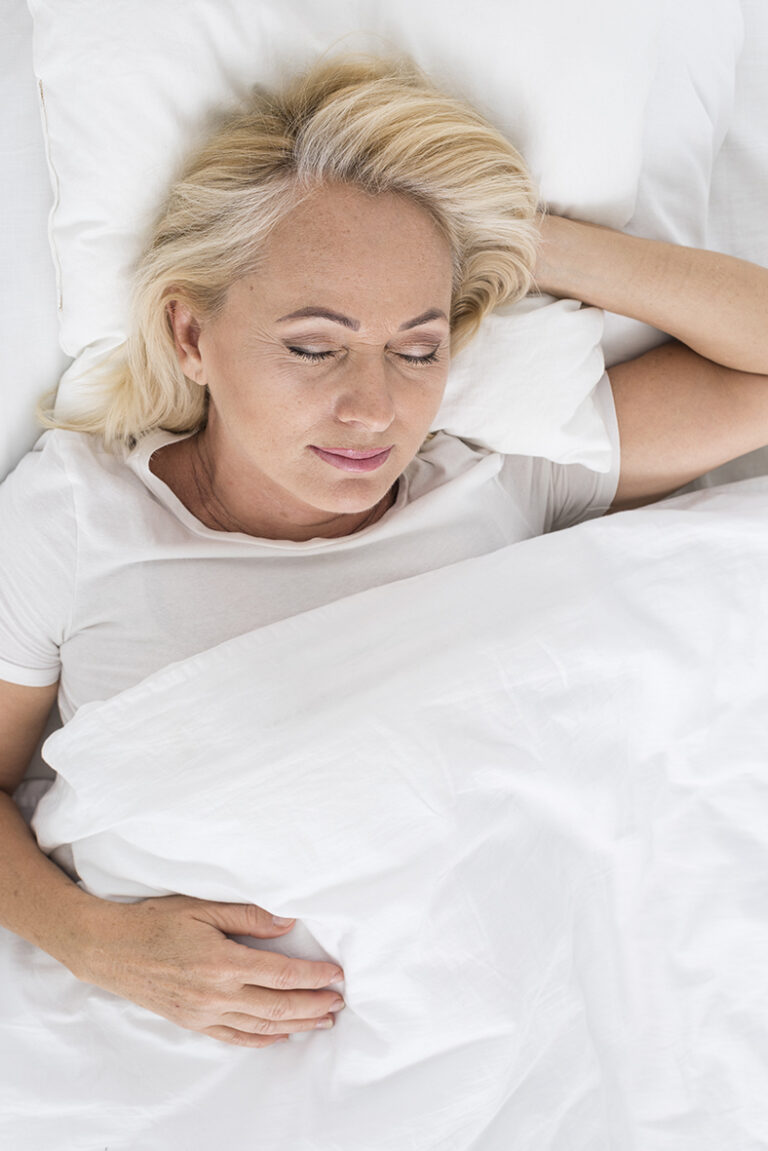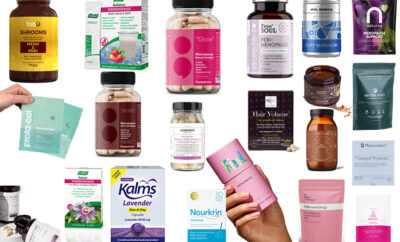
Health & Fitness
Let’s Talk Menopause
Menopause is a natural process that occurs in women and signals the end of their reproductive years. It typically starts between the ages of 45-55 years, or in my case at the age of 41 after being put into a surgical menopause following treatment for Ovarian Cancer. As a result of menopause, women may experience a range of over 34 symptoms of the peri-menopause, menopause and post-menopausal stages. Thankfully not every woman will suffer all of them, but every woman will experience at least a few symptoms such as hot flashes, mood swings, and difficulty sleeping. Menopause can be a challenging time for women, both physically and emotionally. However, with the right treatment, lifestyle choices, and supplements, it is possible to ease the symptoms and navigate this phase of life successfully.
One of the options available is hormone replacement therapy (HRT), which can potentially alleviate menopausal symptoms such as hot flashes, night sweats, and vaginal dryness. HRT replaces estrogen and progesterone that the body is no longer producing, which can help to ease the symptoms associated with menopause. A thorough consultation with a healthcare professional is recommended before taking any hormone supplements as HRT is not suitable for everyone.
In addition, a healthy lifestyle is extremely beneficial to alleviate symptoms. Regular exercise and a balanced diet can improve physical and mental wellbeing, and potentially reduce the risk of heart disease, osteoporosis, and other medical conditions associated with menopause.
Lastly, over-the-counter products such as black cohosh, evening primrose oil, and soy products can effectively reduce menopausal symptoms. However, it is crucial to purchase products only from trusted and regulated manufacturers.

Let’s talk Supplements
Menopause supplements are a great way to help support women’s well-being during the hormonal changes that occur during menopause. Here are some well documented recommendations:
1. Black Cohosh: A plant-based supplement that is believed to help relieve hot flashes, sleep disruptions, and mood swings.
2. Red Clover: A plant-based supplement containing phytoestrogens that may mimic the effects of estrogen in the body, helping reduce hot flashes and night sweats.
3. Calcium and Vitamin D: Both nutrients are important for maintaining bone health during menopause, when women are at greater risk of osteoporosis.
4. Magnesium: Helps reduce muscle and joint pain associated with menopause and promote relaxation and better sleep.
5. Probiotics: May help relieve digestive problems such as bloating and constipation, which some women experience during menopause.
As with any supplement, it’s important to speak with a healthcare professional first, especially if you have any underlying health concerns or are taking other medications.

Let’s talk Exercise
It’s common to gain weight during menopause and one of the things women find was the hardest to deal with.
This can be due to a combination of changing hormones, aging, lifestyle, and genetics.
Gaining excess body fat, especially around the waist, increases the risk of developing diseases such as heart disease and diabetes.
The good news is that exercise can significantly improve symptoms associated with menopause. First, exercise can strengthen the heart and boost metabolism, both of which naturally decline during menopause. This can help prevent weight gain and reduce the risk of cardiovascular diseases.
Additionally, exercise releases endorphins that improve mood and reduce stress levels, helping with menopausal mood swings. Exercise also promotes better sleep by increasing sleep quality and duration.
Finally, exercise can also help with bone loss, which is common during menopause due to decreasing estrogen levels. Strength training can slow down the process of bone loss and reduce the risk of developing osteoporosis.
Even just a few minutes of physical activity each day can contribute to a healthier and happier life.
Fresh air and sunlight will do you the world of good, even just a quick walk in the park is good for you.
There are countless home workouts that you can follow on YouTube which can make exercising from home both fun and less intimidating.

Let’s talk Diet
It is essential to follow a healthy and balanced diet during menopause to manage these symptoms effectively. Eating a nutritious diet rich in fruits, vegetables, whole grains and protein is especially beneficial during menopause. These foods are rich in essential nutrients such as fibre, vitamins, and minerals that help support overall health and well-being. Additionally, foods high in calcium, Vitamin D, and magnesium are crucial during menopause, as they can help reduce the risk of bone loss and fractures that are common during this stage.
Sunlight is your main source of vitamin D, since your skin produces it when exposed to the sun. However, as you get older, your skin gets less efficient at making it.
Rich dietary sources include oily fish, eggs, cod liver oil, and foods fortified with vitamin D.
Green, leafy vegetables such as kale, collard greens, and spinach have lots of calcium too. It’s also plentiful in tofu, beans and sardines.
It is also essential to limit the intake of foods that are high in sugar, fat, and salt, as they can exacerbate symptoms such as bloating, fatigue, and mood swings. Moreover, staying hydrated and consuming adequate amounts of water is vital to regulate body temperature during hot flashes and ease digestion.
Food Facts
Did you know eating just eight Vitamin D enriched mushrooms will provide you with your daily dose (10mg) of vitamin D

Natural ways to help reduce hot flushes in menopause
Sage has been used as a natural remedy for menopause for hundreds of years. Sage has been thought to help relieve a range of symptoms including hot flushes and night sweats. Now, there’s some scientific evidence to back up these claims.
In 2011, Swiss researchers discovered that women taking a daily tablet of fresh sage leaves experienced a reduction in hot flushes by 50% in four weeks. After continuing to take sage, hot flushes among the participants were reduced by 64% within eight weeks.
According to the same study on sage, the helpful herb could reduce psychological symptoms of the menopause, such as mood swings, by 47%, too.
In the Swiss study, the women took a tablet made from fresh sage leaves, which are available at health food shops. Alternatively, you could make a sage tea using ready-made sage tea bags, or with loose, dried sage leaves in a strainer with boiling water poured on top and left to cool.

Boosting low libido
Many women say they experience a dip in their sex life during menopause. This is completely normal however, intimacy is important at every stage of adulthood, and symptoms like vaginal dryness and vaginal atrophy (where the tissues of the vagina start to thin) can add further emotional pressure during this time.
A 2014 Iranian study found that women taking ginkgo biloba as an herbal remedy for menopause every day for 30 days felt more sexual desire compared with those taking a placebo.
Ginkgo biloba has also been shown to help relieve some of the psychological symptoms of the menopause – including memory problems and mild anxiety.

Menopause Resources
Here is a list of organisations and charities that you may find helpful.
https://www.nhs.uk/conditions/menopause/help-and-support/
https://www.womens-health-concern.org/
https://www.menopausematters.co.uk/
https://www.menopausecafe.net/
https://www.themenopausecharity.org/
https://menopausesupport.co.uk/





You must be logged in to post a comment Login